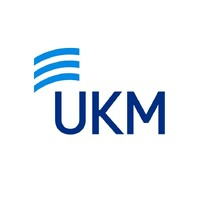Postdoc - Neuroscience (m/f/d)- Universitätsklinikum Münster
Universitätsklinikum Münster
Datum: vor 11 Stunden
Stadt: Münster, Nordrhein-Westfalen
Vertragstyp: Ganztags

Postdoc (gn*) Mathematics, Computer Science, Physics, Biomedical or Electrical Engineering
Limited to 2 years | Full-time with 38.5 hours/week | German salary grade 13 TV-L | The medical faculty in collaboration with the mathematics department of the University of Münster | Job ID: 10797
We are UKM. We have a clear social mission and, with our focus on healthcare, research, and teaching, we bear a unique responsibility.
To meet our high standards every day, we are looking forward to your scientific expertise to work within the project funded by the German Research Foundation (DFG) “Multi-channel transcranial current stimulation (mc-tCS): a novel approach to modulate smooth pursuit eye movement control in healthy individuals and patients with psychotic disorders” - ideally with you on board!
Your Tasks
The applicant will contribute to the development, evaluation and application of new EEG and MEG neuroimaging and mc-tCS simulation approaches based on realistic head volume conductor models using modern finite element methods as well as sensitivity analysis. The new methods will be applied in close collaboration with our clinical colleagues for investigating visual motion in a group of healthy subjects.
What We Expect
The successful applicant holds a PhD degree (or equivalent) in a relevant academic area such as applied mathematics, computer science, physics, biomedical or electrical engineering or similar disciplines. Good programming expertise (Matlab, C++, Python or equivalent) and experience with the Linux operating system is expected, because large software toolboxes are used and further developed. The working language at the institute is English. Experience with targeted and optimized brain stimulation and with the measurement and analysis of brain signals is advantageous, but not essential. The applicant’s merits are assessed on the basis of the quality of master’s level and PhD studies and theses, previous experience with neuroimaging, numerical mathematics, optimization, inverse problems, software development, motivation and research interests.
The location for this research will be the workgroup of Prof. Dr. Carsten Wolters at the Institute for Biomagnetism and Biosignalanalysis/IBB (https://www.medizin.uni-muenster.de/biomag/das-institut.html). Expected close collaborations and visits are to the partnering clinic, namely the Department of Psychiatry and Psychotherapy at the University of Lübeck (Prof. Dr. med. Rebekka Lencer; director: Prof. Dr. Stefan Borgwardt).
Benefits
Limited to 2 years | Full-time with 38.5 hours/week | German salary grade 13 TV-L | The medical faculty in collaboration with the mathematics department of the University of Münster | Job ID: 10797
We are UKM. We have a clear social mission and, with our focus on healthcare, research, and teaching, we bear a unique responsibility.
To meet our high standards every day, we are looking forward to your scientific expertise to work within the project funded by the German Research Foundation (DFG) “Multi-channel transcranial current stimulation (mc-tCS): a novel approach to modulate smooth pursuit eye movement control in healthy individuals and patients with psychotic disorders” - ideally with you on board!
Your Tasks
The applicant will contribute to the development, evaluation and application of new EEG and MEG neuroimaging and mc-tCS simulation approaches based on realistic head volume conductor models using modern finite element methods as well as sensitivity analysis. The new methods will be applied in close collaboration with our clinical colleagues for investigating visual motion in a group of healthy subjects.
What We Expect
The successful applicant holds a PhD degree (or equivalent) in a relevant academic area such as applied mathematics, computer science, physics, biomedical or electrical engineering or similar disciplines. Good programming expertise (Matlab, C++, Python or equivalent) and experience with the Linux operating system is expected, because large software toolboxes are used and further developed. The working language at the institute is English. Experience with targeted and optimized brain stimulation and with the measurement and analysis of brain signals is advantageous, but not essential. The applicant’s merits are assessed on the basis of the quality of master’s level and PhD studies and theses, previous experience with neuroimaging, numerical mathematics, optimization, inverse problems, software development, motivation and research interests.
The location for this research will be the workgroup of Prof. Dr. Carsten Wolters at the Institute for Biomagnetism and Biosignalanalysis/IBB (https://www.medizin.uni-muenster.de/biomag/das-institut.html). Expected close collaborations and visits are to the partnering clinic, namely the Department of Psychiatry and Psychotherapy at the University of Lübeck (Prof. Dr. med. Rebekka Lencer; director: Prof. Dr. Stefan Borgwardt).
Benefits
- Exciting Projects
- Professional Development and Training
- Interdisciplinary Collaboration
- Part of Research Innovation
- Additional Benefits